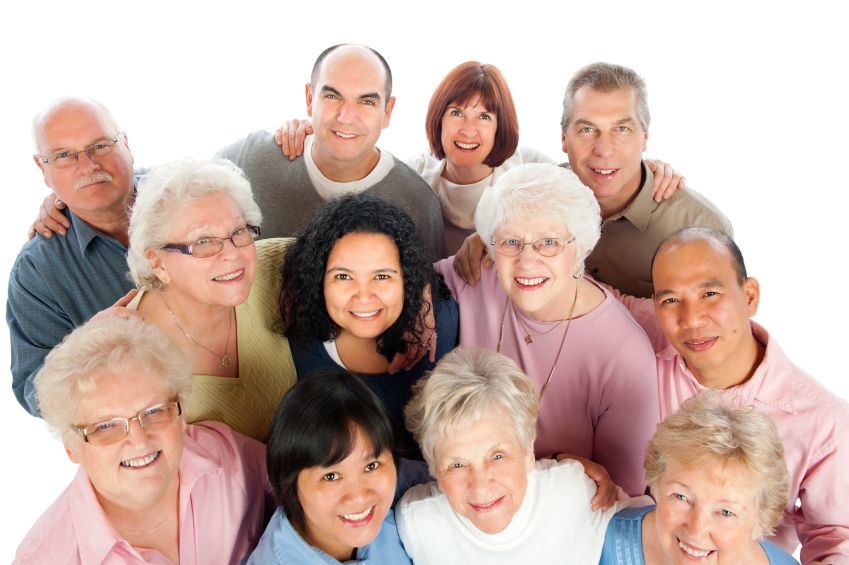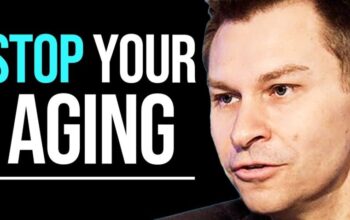As we age, our bodies undergo a series of changes that affect our physical and mental health. This natural process is known as aging or aging, which happens to all living beings. However, the speed and extent of these changes can vary depending on several factors, such as genetics, lifestyle, and environment.
In this article, we will explore the science behind aging and explore some of the latest research findings that shed light on the aging process. We will also discuss some practical tips to help you age gracefully and improve your quality of life.
What is Aging?

Aging is a complex biological process that involves a gradual decline in the body’s ability to maintain homeostasis, which is the balance of physiological functions that keep us healthy and alive. This decline can affect various organs and systems in the body, leading to a wide range of age-related diseases and conditions.
How Does Aging Happen?
Aging happens at the cellular and molecular level, involving a combination of genetic and environmental factors. One of the main theories of aging is the “wear and tear” theory, which suggests that accumulating damage to cells and tissues over time leads to aging.
Another theory is the “programmed aging” theory, which proposes that aging is a genetically regulated process programmed to happen at a certain point in the lifespan of an organism. There are also several other theories of aging, such as the oxidative stress theory, the inflammation theory, and the mitochondrial dysfunction theory.
What are the Effects of Aging?
Aging can have various effects on the body, such as:
- Reduced muscle mass and strength
- Decreased bone density
- Increased risk of chronic diseases such as diabetes, heart disease, and cancer
- The decline in cognitive function and memory
- Weakening of the immune system
- Changes in vision and hearing
- Decreased metabolism and energy levels
How to Age Gracefully?
While aging is a natural process that cannot be stopped, there are several things you can do to slow down the aging process and improve your quality of life as you age. Here are some tips:
Eat a Healthy Diet
A healthy diet that is rich in nutrients can help you maintain a healthy weight, reduce your risk of chronic diseases, and improve your overall health. Eat plenty of fruits, vegetables, whole grains, lean proteins, and healthy fats.
Exercise Regularly
Regular exercise can help you maintain muscle mass and strength, improve bone density, boost metabolism, and reduce risk of chronic diseases. Aim for at least 150 minutes of moderate-intensity exercise per week.
Get Enough Sleep
Sleep is crucial for your physical and mental health and plays a vital role in aging. Aim for 7-9 hours of sleep per night and maintain a regular sleep schedule.
Manage Stress
Chronic stress can negatively affect your health and accelerate the aging process. To manage stress, practice relaxation techniques such as meditation, deep breathing, or yoga.
Stay Socially Active
Staying socially active can help you maintain cognitive function and memory, reduce your risk of depression, and improve your overall well-being. Join clubs, volunteer, or stay in touch with friends and family.
Latest Research Findings
In recent years, there has been a lot of research into the aging process, and several new findings have emerged. Here are some of the most interesting ones:
Senolytics
Senolytics are drugs that can selectively kill senescent cells, which have stopped dividing and are thought to contribute to aging and age-related diseases. Several studies have shown that senolytics can improve the health span of mice and other animals, and there are currently several clinical trials underway to test their efficacy in humans.
Caloric Restriction
Caloric restriction is a dietary intervention that reduces calorie intake while maintaining adequate nutrient intake. Several studies have shown that caloric restriction can extend lifespan and improve healthspan in various animal models, from worms to primates. However, the effects of caloric restriction on human health are still under investigation.
Cellular Reprogramming
Cellular reprogramming is a technique that involves reprogramming cells to a younger, more pluripotent state. This technique has been shown to reverse the effects of aging in mice and other animals, and it can potentially be a powerful tool for regenerative medicine.
Telomere Extension
Telomeres are the protective caps at the end of chromosomes that shorten with each cell division. Short telomeres are associated with aging and age-related diseases. Several studies have shown that telomere extension can reverse some aging effects in mice and other animals. Several clinical trials are currently underway to test this approach in humans.
Conclusion
Aging is a natural process that happens to all living beings, and it involves a gradual decline in the body’s ability to maintain homeostasis. While aging cannot be stopped, there are several things you can do to slow down the aging process and improve your quality of life as you age. A healthy diet, exercising regularly, getting enough sleep, managing stress, and staying socially active are some of the key strategies for aging gracefully.
Moreover, recent research findings have shed new light on the aging process and offered exciting possibilities for interventions that could extend health span and lifespan. Senolytics, caloric restriction, cellular reprogramming, and telomere extension are some of the promising approaches that are currently being studied.




